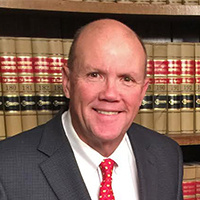Coffee Springs Misdemeanor Lawyer, Alabama
Not enough matches for Coffee Springs Misdemeanor lawyer.
Below are all Coffee Springs Criminal lawyers.
William B. Matthews
✓ VERIFIEDDivorce & Family Law, Criminal, Accident & Injury, Business, Estate
William Matthews, Jr. is a practicing lawyer in the state of Alabama specializing in Divorce & Family Law; Criminal; Accident & Injury; Bankruptcy & D... (more)
Charles W Blakeney
Social Security, Trusts, Divorce & Family Law, Criminal
Status: In Good Standing Licensed: 33 Years


